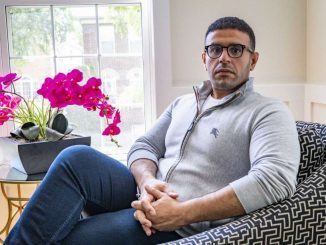
The leaked video that showed the Egyptian soldiers executing eight unarmed detainees, including a minor, in the Sinai peninsula and tried to cover up the extrajudicial killings by claiming they had happened in combat should alarm all those interested in the cause of democracy in the Arab world, said The Guardian in a report.
Back in December, the Egyptian army posted on its Facebook page that the military had raided a militant outpost, killing eight and arresting four others.
However, a three-minute video that was broadcast this weekend by the opposition channel Mekameleen T.V, raises serious questions over the army’s version of events. It shows no firefight but does record the cold-blooded murder of prisoners.
The opposition channel, which broadcast the footage, said that the video was filmed in December 2016 in Sinai. The three minutes video shows the summary execution of at least three people and other bodies can be seen lying on the ground.
The video shows uniformed soldiers escort a blindfolded man into the field out of military vehicles, place him on his knees, and shoot him multiple times in the head and upper body.
A cameraman can also be seen taking footage of one body. A soldier then appears to remove a gun from next to the body when the cameraman finishes filming.The victims appear to have their blindfolds removed before being shot.
There is speculation that the summary executions were staged by the soldiers to look as if the deaths had happened in combat.
One soldier can be heard saying repeatedly “not just the head”as another shoots one of the victims.
“Predictably, Cairo’s military dictatorship calls this propaganda by its opponents,: said the Guardian. Moreover, as predictable there’s to be no investigation into alleged war crimes.
The video was leaked on the day the US defense secretary, Jim Mattis, sat down with Egypt’s ruler, Abdel Fattah al-Sis, who seized power in a bloody military coup in 2013.
“Possibly the most authoritarian leader in the Middle East, a title for which there is some competition, al-Sisi bears responsibility for the deaths of hundreds of Egyptians, jailing thousands of others and running his country’s economy into the ground,”said the Guardian.
The British daily newspaper criticized U.S stance towards al-Sisi saying,” Instead of treating the Egyptian leader as a pariah, this month Donald Trump welcomed him to the White House after he had been cold-shouldered by Barack Obama for years.”
As a result, Cairo’s pro-Sisi press proclaimed that human rights in Egypt where no longer an issue.”This may be true,” said the Guardian.
In fact, although Egypt is a human rights”priority country” however, it seems that the financial and security interests undermine human rights conditions in the the country.
This isn’t the case only with Trump administration but also with Britain and other European countries. During his visit to Egypt in February, the foreign secretary, Boris Johnson, didn’t focus on human rights. According to the Guardian,”Perhaps Britain cannot afford such moral positions. British companies have extensive offshore gas interests in Egypt.” “The hypocrisy is not just ours,” said the Guardian.
Following the coup, an EU arms embargo was brought in but it is honored more in the breach. About £120 million in British arms have been sold since the coup.
The Guardian said,”Every state must deal with unsavory leaders to pursue a national interest, but enabling a regime to torture and kill civilians and political opponents is a dreadful wrong.”
In this context, Human Rights Watch is right to this week call on parliamentarians in Berlin to reject a proposed security agreement with Cairo because it could make German officials complicit in serious human rights violations.
In fact, Human rights abuses undermine efforts to establish security throughout Egypt. Experts point out there is a terror attack everyday in Sinai.
In fact, “Al-Sisi has turned what started five years ago as minor local unrest into an Egypt-wide jihadi insurgency,” said the Guardian.
Al-Sisi’s approach to counter-terrorism has made things worse, not better. The crackdown on the Muslim Brotherhood, an Islamist organization that is committed to pursue its goals through electoral means, fueled a low-grade insurgency pitting jihadists in Egypt’s strategic Sinai Peninsula against government security forces.
Al-Sisi began cracking down first on the Muslim Brotherhood’s supporters after the military coup in 2013.
When pro-Morsi demonstrators staged a peaceful sit-in in Cairo’s Rabaa al-Adawiya Square on August 14, 2013, to protest Morsi’s ouster, Sisi’s military forces gunned them down and more than 1000 in a single day, and more than 40,000 people are jailed in a crackdown.
In the same context, a report from the German Council on Foreign Relations explained that “After the crackdown in Rabaa Square, there was a significant change in the insurgency’s rhetoric, behavior, intensity, and scale of operations, as well as in its overall narrative and goals.”
The report quotes one jihadist leader in Sinai linking this directly to Sisi’s repression,”After what happened after the military coup, fighting the armed forces became an urgent necessity,”the leader said.
In 2014, the Sinai jihadists swore allegiance to ISIS. Since then, Sinai militants has led excessive campaign against the Egyptian security forces. Sisi’s repressive response, which has included evicting thousands of families suspected of supporting the jihadists from their homes, has failed to contain and curb the insurgency.
Moreover, the number of terrorist in Egypt between (2014-2016) reached 1,165, according to Al-Ahram Center for Political and Strategic Studies.
In the last quarter of 2016, 104 terrorist operations took place across the country. And on October 31, 2015, a Russian passenger airliner, Metrojet Flight 9268, was brought down over north Sinai following its departure from the resort town of Sharm el-Sheikh, killing 213.
ISIS-linked militants in the Sinai, known as Sinai Province, claimed their responsibility.
In addition, al-Sisi has actually strengthened jihadists narrative.
Jihadists have argued that violence was the only way to topple the Middle East dictators.As a result, when al-Sisi launched his military takeover of the country, ousted Morsi, and proceeded to crack down hard on dissent of all kind — Islamist or otherwise — it was a bitter “we told you so”, will say the jihadists.
They would also say,”You have to listen to us as ballot boxes have no use and what we have been saying all along that all these people understand is violence.”



